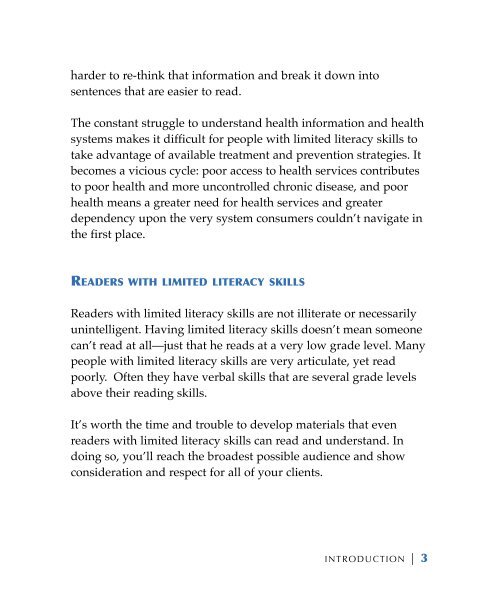The Health Literacy Style Manual - Covering Kids & Families
The Health Literacy Style Manual - Covering Kids & Families
The Health Literacy Style Manual - Covering Kids & Families
You also want an ePaper? Increase the reach of your titles
YUMPU automatically turns print PDFs into web optimized ePapers that Google loves.
harder to re-think that information and break it down into<br />
sentences that are easier to read.<br />
<strong>The</strong> constant struggle to understand health information and health<br />
systems makes it difficult for people with limited literacy skills to<br />
take advantage of available treatment and prevention strategies. It<br />
becomes a vicious cycle: poor access to health services contributes<br />
to poor health and more uncontrolled chronic disease, and poor<br />
health means a greater need for health services and greater<br />
dependency upon the very system consumers couldn’t navigate in<br />
the first place.<br />
READERS WITH LIMITED LITERACY SKILLS<br />
Readers with limited literacy skills are not illiterate or necessarily<br />
unintelligent. Having limited literacy skills doesn’t mean someone<br />
can’t read at all—just that he reads at a very low grade level. Many<br />
people with limited literacy skills are very articulate, yet read<br />
poorly. Often they have verbal skills that are several grade levels<br />
above their reading skills.<br />
It’s worth the time and trouble to develop materials that even<br />
readers with limited literacy skills can read and understand. In<br />
doing so, you’ll reach the broadest possible audience and show<br />
consideration and respect for all of your clients.<br />
I N T R O D U C T I O N | 3


